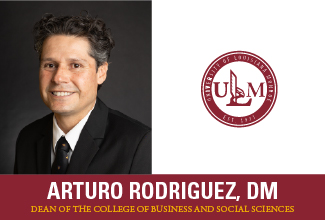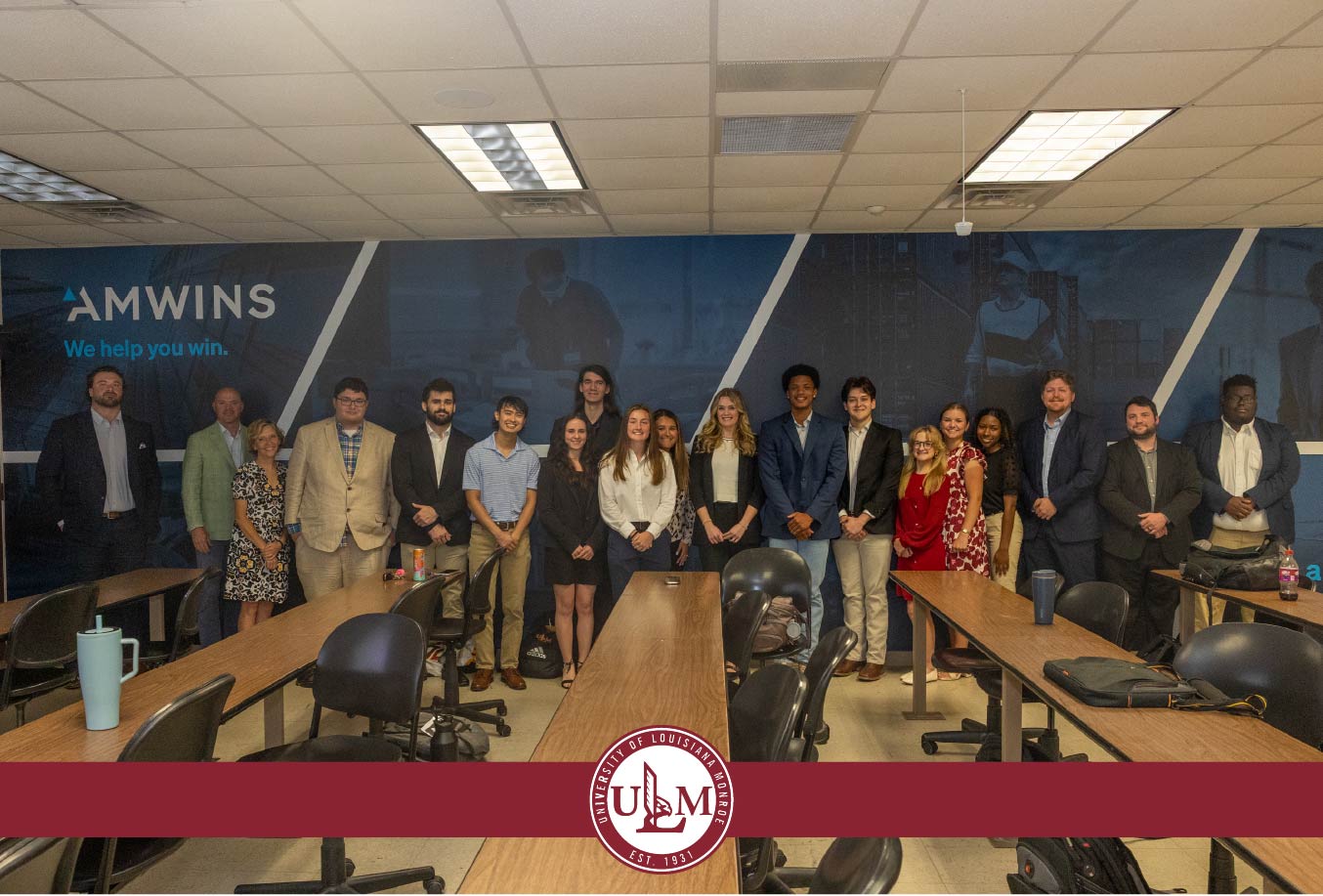


The Criminal Justice program at The University of Louisiana Monroe is the oldest of its kind in the state. The undergraduate programs began in 1970 and the graduate program began in 1974. There are currently four full-time faculty members, as well as adjunct faculty (local police, courts, and correctional personnel) and graduate teaching assistants. The programs graduate between 50 and 70 persons each year.
The program offers two degrees: the Bachelor of Arts and the Master of Arts in Criminal Justice. In addition, the faculty provide in-service and continuing education training to law enforcement officers in the northeast Louisiana region, and from surrounding states.
Several criminal justice courses are taught in the evening and/or online. All courses are offered online, at one time or another, providing for a convenient means of completing the entire degree from a distance, if students should so desire.
Making sure your program is the right financial investment is an important part of the search process.
COST & FINANCINGThe Criminal Justice program is supported by several privately funded scholarships. Awards for the coming academic year are made, usually by the end of April each year. Depending upon the particular award, upon the amount of the award, and other factors, the student may choose the semester or semesters in which the awards will be distributed within the academic year to which the award applies. Most awards are renewable for up to three years, but renewal is not automatic. Recipients must re-apply each year and must meet both initial qualifications and continuing qualifications for each award period.
List of Scholarships - Annually Funded
Buddy Henderson Memorial Scholarship in Criminal Justice - This scholarship fund was established by friends of Mr. Buddy Henderson, an officer with the Louisiana Department of Wildlife and Fisheries in Morehouse Parish, who died in a line-of-duty accident.
Jerry Posey Memorial Scholarship in Criminal Justice - This annual scholarship fund was established by the Criminal Justice Alumni Association in memory of Jerry Posey, a Ouachita Parish deputy sheriff.
West Monroe Police Reserves Scholarship in Criminal Justice - This scholarship was established by the West Monroe Police Department Reserve Unit and is funded annually from gun show proceeds and other fund-raising activities of the WMPD Reserve Unit.
Endowed
Kinsey Memorial Scholarship in Criminal Justice -This scholarship/faculty-development fund was established by Lou Kinsey in memory of her mother, Delores Kinsey, and her brother, Hollis Kinsey. At least 25% of the interest earned on this endowed fund is awarded to students who are Criminal Justice majors.
Monroe Police Local Number 81 Scholarship in Criminal Justice - Established by the police union of the Monroe Police Department.
Paul Howard Kitchens Memorial Scholarship(endowed) . Established by Mr. and Mrs. William F. Kitchens in memory of their son.
Sheriff Bailey Grant Memorial Scholarship in Criminal Justice - Established by friends of Bailey Grant, a long-time sheriff of Ouachita Parish, LA.
State Trooper Mike Kees Memorial Scholarship in Criminal Justice - Established by officers of the West Monroe Police Department in memory of Mike Kees, a state trooper killed in an automobile accident on duty.
Sidney Wilhite Scholarship in Criminal Justice
Terry M. Cannon Memorial Scholarship in Criminal Justice
Graduate assistantships are available for both teaching and research positions. They are competitive and based upon qualifications of individual students for the positions that are available at the time. The graduate assistantship stipend is currently $6,000 and the work-study stipend is slightly more than $4,400 for the 9-month academic year. Graduate assistantships also result in waiver of tuition and fees; work-study does not (though it does result in waiver of out-of-state tuition). Applications may be submitted at any time, but the normal funding cycle results in awards being made in March or April for the coming academic year. Those interested in applying should obtain an application from the Graduate School website.
The program holds a job fair each year in March or April. It is routinely attended by 40 to 60 criminal justice agencies representing federal, state, and local agencies in the fields of corrections and police. Representatives from as many as 10 states across the country have attended the job fair. For further information, please contact Dr. Bonner.
Approximately 2,000 students have graduated from the Criminal Justice Program since it began in 1970. We maintain a list of approximately 850 of those graduates, along with contact phone numbers, agency of employment, and so forth. These alumni provide faculty and students with information and assistance where appropriate. The booklet containing these names is made available to students upon request. For further information about the Networking System, contact Dr. Robert Hanser.
The ULMCJAA was formed in the mid-1980s. It currently has a large concentration of members from the local area. These alumni meet periodically with students and provide them with information and to some degree maintains a mentoring relationship with active students. The Alumni Association also funds a major scholarship award. For further information, contact Dr. Robert Hanser.
Students learn in a supportive yet challenging environment guided by an accomplished,
professional faculty, with ample opportunities for support and mentoring.
The criminal justice field encompasses a wide range of industries and careers that can be exciting, rewarding, and lucrative. Criminal justice jobs are demanding, but the rewards of serving your fellow citizens are unparalleled.
Here are a few of the top careers in this field:
-Crime Scene Investigator
-Forensic Accountant
-Paralegal
-Private Investigator
-FBI Agent
-Emergency Management Coordinator
-Corrections Manager
-Law Enforcement
-Homeland Security
-Judiciary Services
-Social Justice Services
The Bachelor of Arts degree requires the completion of 120 semester-hours and is normally completed in 4 years. This degree program has the highest enrollment of the three that we offer. Approximately 60% of the students graduating from this program enter law enforcement at either the federal, state, or local level. Approximately 30% enter the corrections field in either juvenile or adult community or institutional positions. The remaining 10% of students graduating from this program go to law school, to graduate school, or into related areas of employment.
The Master of Arts degree 33 semester-hour (thesis option) or 36 semester-hour (non-thesis option) program. The enrollment of this program ranges between 25 and 35 with an average of approximately 30 enrolled in any given semester. All graduate courses are offered both online and in the classroom with offerings alternating between classroom and online delivery. Classroom courses are held primarily in the evening hours. A student can obtain this degree within a one to two year time frame; most complete in 18 to 24 months. The degree can be obtained through online courses but the time to complete the course of study may extend to 24 or 36 months, depending upon self-imposed limitations and the availability of appropriate coursework. See the Graduate Catalog for entry requirements.
Alpha Phi Sigma is a national honor society for Criminal Justice students. It is active at ULM and often combines its activities with those of Lambda Alpha Epsilon. Membership in these two organizations often overlaps. For further information, please contact Dr. Robert Hanser.
Lambda Alpha Epsilon is a national association of Criminal Justice students. It is active at ULM, often combining its activities with those of Alpha Phi Sigma. Students participate in local fund raising events, attend regional and national meetings, and engage in charitable activities. For further information, please contact Dr. Bonner.
Learn more about financial aid options: https://www.ulm.edu/financialaid/
Learn more about scholarship opportunities: https://www.ulm.edu/scholarships/



